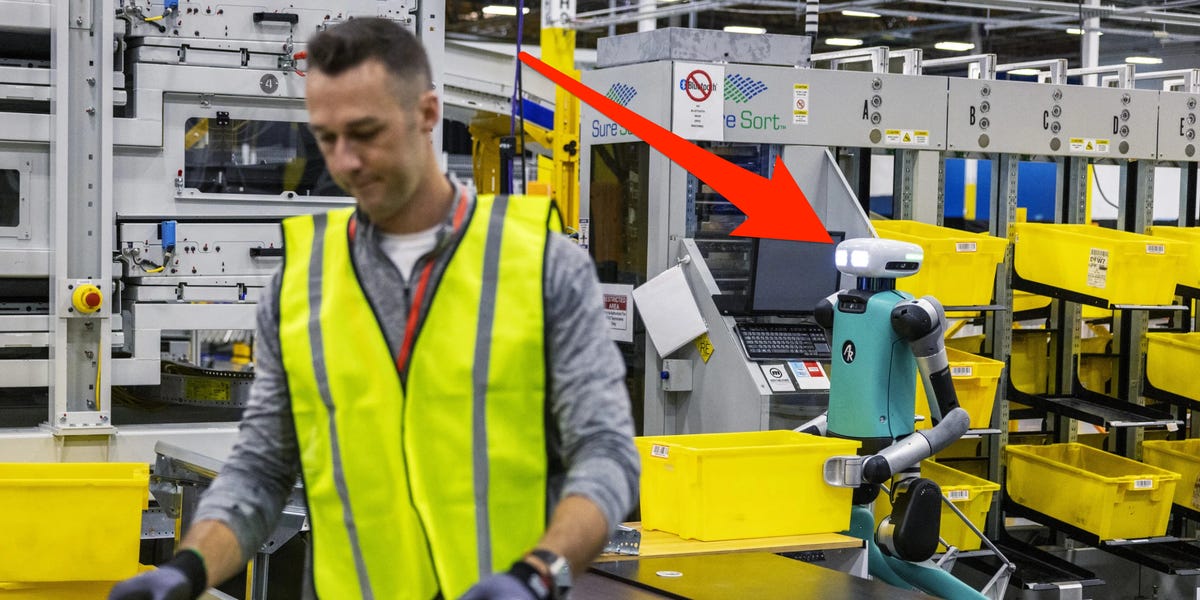Amazon’s humanoid warehouse robots will eventually cost only $3 per hour to operate. That won’t calm workers’ fears of being replaced.::The robot’s human-like shape is bound to reignite workers’ fears of being replaced, but Amazon says they’re designed to “work collaboratively.”



People bitch about working conditions and the actual work in these warehouses yet don’t want to be replaced by a robot who doesn’t care about any of that? Yeah, no. I’m all for robots doing this kind of soul sucking work.
Yeah, I’m all for automating menial boring work as that will free up a ton of creative potential. I fear, however, this might just allow corporations to further their grip on our society unfettered. We need governing bodies immune to profit capture if we’re to utilize all that human creative potential.
Totally agree with you there. Corporations have way too much power in our culture.
They really do have far too much power and influence. Capitalism without ethics will always be a detriment to the people.
Without ethics in place it’s just everyone out for themselves trying to get paid while the rest just try to survive without losing it all.
Never fully understood how bad it can be until I saw my rural area get taken over. A decade or so ago it was just a town of poor folks and prices for housing, food etc. Reflected that. Then the rich folks, corporations etc discovered that money could be made here and that was it. All of the small businesses have been bought out and replaced with chain stores. Prices for everything have drastically increased to where a cheeseburger that sold for $5 a few years ago is now $25. Homes that were selling for $60k are now hundreds of thousands, a million in some cases. Almost all of the farmland was bought and sold to developers then turned into subdivisions who then marketed to “higher” class citizens who could afford to pay the asking price.
It was a small town where everyone knew each other. To date I’d estimate that 90% of those families have moved within a 10 year period. These are multigenerational families, many of which can date their family history here back to when their ancestors first migrated here.
Now it’s just a sea of opportunity for those into real estate and big business.
The common people never had a choice in the matter. These people just used their deep pockets to take everything over.